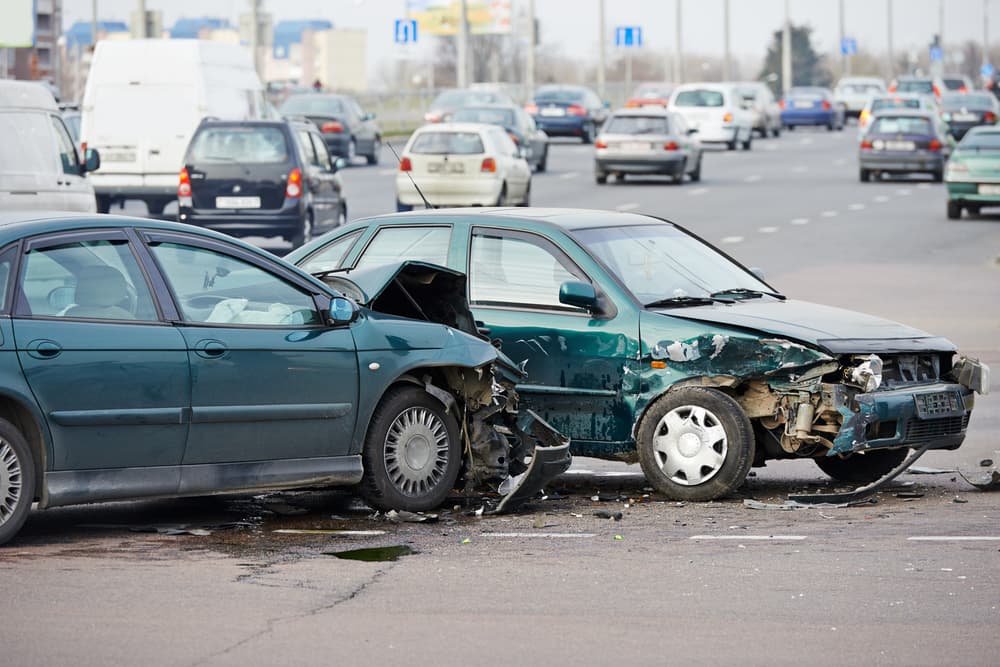
Collision vs. Accident: Do You Know How They Affect Your Right To Compensation?
When it comes to car crashes, words have meaning. If you’ve ever wondered whether there’s a difference between the terms “accident” and “collision,” you’re not alone. This is a question many people consider, especially after a serious crash that leaves victims grappling with injuries, medical bills, and emotional turmoil.
If you’re in West Virginia and trying to make sense of what happens after a crash, insights from experienced car accident lawyers may help clarify the difference between an accident and a collision and why it could significantly impact how you pursue a claim.
Why Words Matter in Personal Injury Cases
Think back to the word “accident.” It implies something unavoidable, a twist of fate where no one is to blame. For example, you might describe spilling a glass of water as an accident. However, when it comes to serious motor vehicle crashes, this term can sometimes work against victims seeking justice.
On the other hand, “collision” is a more neutral, factual term. It describes the event without assigning blame or suggesting randomness. This distinction might seem subtle, but in legal cases, it’s a game-changer.
Insurance companies and defense attorneys are quick to capitalize on the idea of an “accident” to downplay responsibility. After all, if a crash was just a careless mistake, how can anyone really be held accountable?
By reframing the narrative with the word “collision,” injured parties can focus on establishing fault and negligence and ensure that the responsible driver is held accountable for their actions.
A Shift in Perspective
Even legal terminology reflects this evolution. In West Virginia, police officers now use the “State of West Virginia Uniform Traffic Crash Report” to document car incidents, replacing the older “Uniform Accident Report.”
This shift isn’t just bureaucratic; it highlights a growing understanding that most crashes are preventable and involve some degree of fault. Understanding this wording change can provide clarity and empowerment for victims navigating the complexities of a personal injury claim or lawsuit.
How Do I Know If I Have Been in an Accident or Collision?
Car crashes are rarely black-and-white, and the events leading up to them often involve a messy web of circumstances. Even when it seems obvious that another driver was at fault, the details can quickly become confusing and complicate the process of seeking compensation. Here are some examples of situations where clarity is especially difficult to achieve.
Heavy Traffic and Chain Reactions
 Picture this: you’re stuck in morning traffic, crawling along at a snail’s pace, when suddenly you’re rear-ended. The force of the impact pushes your car into the vehicle ahead, creating a chain reaction of damage and injuries.
Picture this: you’re stuck in morning traffic, crawling along at a snail’s pace, when suddenly you’re rear-ended. The force of the impact pushes your car into the vehicle ahead, creating a chain reaction of damage and injuries.
- Who holds the most responsibility in such a scenario?
- Was the driver behind you too close?
- Did the driver in front stop suddenly without reason?
- Is the responsibility split between multiple parties?
Fault in these multi-vehicle collisions often requires a thorough investigation, including eyewitness statements and video footage, if available. Without legal guidance, it’s easy to find yourself unfairly blamed, especially as insurance companies seek to minimize payouts.
Bad Weather Complicates Liability
Rain, snow, or fog can make roads slippery and visibility poor, causing even the most cautious drivers to struggle. However, the weather alone might not be to blame.
- Was another driver speeding despite hazardous conditions?
- Did someone fail to maintain safe following distances?
- Were road conditions, like uncleared snow, a contributing factor?
Even though weather may seem like an unavoidable factor, drivers are still expected to adapt their behavior to the conditions. Proving negligence in these circumstances often requires experience evaluating the totality of the crash.
Negligence Under the Radar
It could be as simple as a distracted driver who drifted into your lane or as dangerous as someone under the influence causing a collision. On the surface, their actions might seem blatantly reckless, but internally, proving these claims can come with complications.
- Were they texting while driving?
- Was there evidence of unsafe lane changes or erratic driving?
- For impaired drivers, were breathalyzer or field sobriety results properly recorded?
These claims frequently become “he said, she said” scenarios without concrete evidence, so collecting every possible detail matters.
The Insurance Company’s Playbook
Perhaps the most challenging complication comes not from the crash itself but from the insurance companies you rely on for compensation. These companies are experts in using vague language and misinterpreting the crash details to protect their bottom line.
- Did they argue the crash was an unavoidable accident?
- Are they suggesting shared fault to reduce their liability?
- Have they pressured you into accepting a lowball settlement?
If you’re grappling with confusion after a collision, it’s worth asking yourself this question: is trying to handle this on your own worth risking the compensation you might leave on the table?
Why Clear Answers Matter
Understanding whether your crash falls under an “accident” or a “collision” is more than semantics. It can influence the way fault is assigned and, ultimately, how much compensation you may receive.
For personal injury claims in West Virginia, this distinction can determine whether a driver’s negligence is recognized and whether they’re held accountable for the financial and emotional toll their actions caused.
That’s why this isn’t a question you should wrestle with on your own. The legal system is complex, and the process can feel daunting when insurance companies are added to the mix. You need someone who can cut through that confusion and protect your interests.
Car Accident vs. Collision Checklist
If you’re unsure whether your crash was simply an “accident” or something that warrants deeper investigation, this checklist can help you evaluate the situation. By asking the right questions, you can better understand whether you might need legal guidance to ensure you aren’t leaving compensation on the table:
- Was another driver negligent? Did the crash involve behaviors like speeding, distracted driving, reckless maneuvers, or failure to follow traffic laws? Even small acts of carelessness can have big consequences and may establish another driver’s fault.
- Are your injuries serious? If you suffered injuries that required medical attention, from whiplash to more severe trauma, you might have grounds for a personal injury claim.
- Is fault being disputed? Are there disagreements about who caused the crash? If police reports, insurance adjusters, or other drivers question your version of events, legal support can help clear up the confusion.
- Is the insurance company offering less than you deserve? Low-ball settlement offers are common. If the payout doesn’t match your actual medical bills, repair costs, or losses, it’s a red flag to speak with an attorney who can advocate for fair compensation.
- Were you partially at fault? Even if you share some responsibility, you may still be eligible for compensation under West Virginia’s comparative fault laws. Understanding how fault is calculated will be critical to determining your options.
- Are you experiencing long-term impacts due to someone else’s negligent or reckless behavior? Whether an accident or a collision, if the crash led to ongoing pain, emotional distress, or permanent changes to your life, you may be eligible to pursue compensation through a personal injury claim or lawsuit.
If you checked even one of these boxes, it’s worth taking the time to consult a reputable car accident attorney who can help you understand how the crash designation may affect your right to maximum compensation.
Auto Accident vs Collision: Why Having Legal Support Matters
Legal professionals bring clarity to complex situations, ensuring that you can focus on getting back on your feet while they handle the heavy lifting. Curious how they can help? Here’s a breakdown of how legal guidance provides much-needed support after a collision or an accident.
Understanding the Bigger Picture
When a crash happens, it’s often more complicated than it looks on the surface. Was it an accident caused by bad weather or a collision resulting from reckless driving? An attorney helps analyze the finer details, pulling together evidence like police reports, road conditions, and witness accounts to understand what happened and why.
Leveling the Playing Field with Insurance Companies
Insurance companies are experts at minimizing claims. They often use vague terms like “accident” to downplay negligence or suggest shared responsibility to reduce payouts. A lawyer who knows the tricks of the trade can push back against these tactics, negotiating assertively to make sure your claim reflects the full extent of your damages.
Establishing Fault When the Details Are Blurred
Determining liability isn’t always straightforward. Maybe a distracted driver rear-ended you, creating a chain-reaction crash. Or maybe hazardous weather led to confusion about who was to blame. Lawyers conduct thorough investigations, from reviewing photographs to speaking with experts, ensuring that fault is determined accurately and fairly.
Securing the Compensation You Deserve
Beyond the immediate costs like car repairs and medical bills, crashes often come with hidden expenses like physical therapy, long-term pain, or missed opportunities to earn income. Legal professionals consider these factors, advocating for you to receive not just compensation for today’s bills but for what the crash may cost you in the future.
Taking the Stress Out of the Process
Most people don’t have the time or energy to juggle legal complexities while recovering from an injury. When you work with a trusted attorney, they handle the paperwork, negotiation, and evidence-gathering on your behalf. This means you can focus on healing, not haggling with insurance adjusters.
Steps to Take After Any Type of Car Crash or Accident
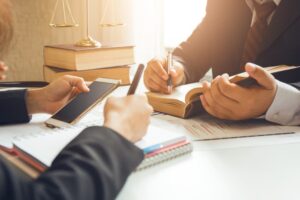 While your lawyer works on establishing your rights to compensation based on the difference between an accident and a collision, there are still things you can do to make sure you maintain a strong claim or lawsuit, including but not limited to:
While your lawyer works on establishing your rights to compensation based on the difference between an accident and a collision, there are still things you can do to make sure you maintain a strong claim or lawsuit, including but not limited to:
- Call a lawyer. Consult a personal injury attorney as soon as possible. Whether navigating complex insurance policies or determining fault, an attorney can provide clarity and handle the legal details you might not feel ready to face. Having someone to advocate for you ensures your rights are protected from the very beginning.
- Notify your insurance company. Most states require informing your insurer about an accident within a certain timeframe. Be honest and stick to the facts, but avoid speculating about fault or downplaying your injuries. Keep in mind that anything you say could later influence your claim.
- Follow up on medical treatment. Recovery isn’t always immediate, and you may need ongoing care. Be diligent about attending follow-up appointments, physical therapy, or prescribed treatments. Proper care not only aids your recovery but also provides evidence of the crash’s impact on your life.
- Keep detailed records. Store everything related to the crash in one place, including medical bills, repair receipts, and correspondence from your insurance company. Even minor expenses, like mileage to doctor appointments, could be recoverable.
- Be cautious with social media. What you post online can be used against you. Avoid sharing details about the crash or posting updates about your recovery that could be misinterpreted by insurance companies or other parties involved in the case.
Whether seeking legal guidance early or keeping thorough records, every action you take now can shape the outcome of your recovery and compensation. Remember, you don’t have to handle it all alone. Reaching out for help can make all the difference in ensuring you move forward confidently.
What’s The Difference Between An Accident and A Collision? Contact Robinette Legal Group For Experienced Legal Support
At first glance, “accident” and “collision” might appear interchangeable. However, when it comes to personal injury cases, the distinction is as significant as it is nuanced. Understanding the difference empowers injured parties to resist dismissive tactics from insurance companies and helps ensure negligent drivers are held accountable for the harm they cause.
If you’ve been involved in a motor vehicle collision and are navigating the complicated road to recovery, consider speaking with a trusted personal injury lawyer who can help guide you through the process. After all, the language around crashes may evolve, but one thing remains constant: you shouldn’t have to face the aftermath alone.
Have questions about how to proceed with your personal injury claim? Connect with Robinette Legal Group, PLLC, online or at (304) 594-1800 to explore your legal options.
Call us today to find out how we can help you.
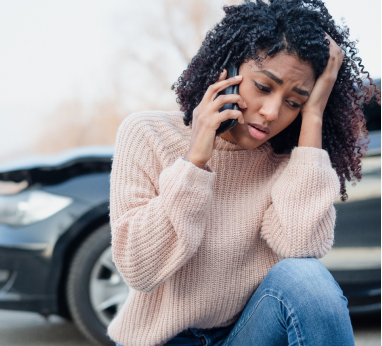

Car Accident Injuries
Jeff Robinette was hired by a young woman who had sustained permanent injuries to her foot due to an auto collision. The insurance company offered such a small amount and dealt with her in such a dismissive manner that the treatment of her case amounted to bad faith on the insurance company’s part. Jeff was able to obtain a substantial settlement which allowed this young woman and her husband to pay medical bills, buy a car and a home, and start building a future together.
Drunk Driver
While driving his car, our client was hit by a drunk driver which injured his shoulder so severely that three surgeries were required. The insurance company haggled over the value of the claim, initially giving a low-ball offer. Jeff Robinette was able to force the insurance company to pay all insurance available for this claim.
Motorcycle Accident
A police cruiser was attempting to make a U-turn on a four-lane highway and collided with our client’s motorcycle. The trooper had failed to follow the rules of the road by making an unsafe or prohibited lane change and was found to have operated his vehicle in an “erratic, careless, or reckless” manner.
As a result of the trooper’s negligent driving, our client sustained bodily injuries which required emergency room treatment and subsequent physical therapy and prescription medication to recover from his injuries.
The Robinette Legal Group, PLLC was able to recover an ample settlement to cover our client’s medical bills, lost wages, and pain and suffering.
Our Awards and Certifications

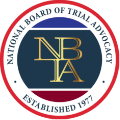

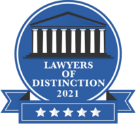
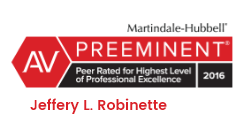


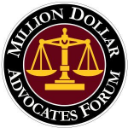
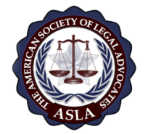




Practice Areas
- Personal Injury Overview
- Bicycle Accidents
- Brain Injuries
- West Virginia Burn Injury Attorney
- Car Accidents
- Commercial Delivery Truck Collisions
- Construction Site Injuries
- Dog Bite Injuries
- Drunk Driver (DUI) Accidents
- Gas Explosion Injuries
- Insurance Claim Disputes
- Mining Accident Injuries
- Motorcycle Accidents
- Pedestrian Accidents
- Medical Malpractice
- Rear-End Collisions
- Scaffold & Ladder Fall Injuries
- Slip And Fall Accidents
- Spinal Cord Injuries
- Truck Accidents
- Uninsured Motorists
- Work Accidents
- Wrongful Death



